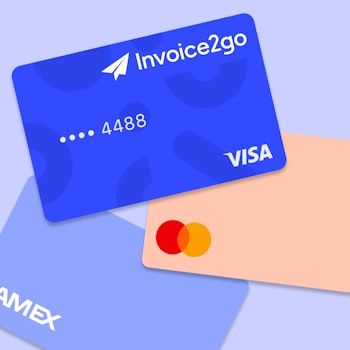
The ultimate list of new small business tax deductions (2022)

There is a lot involved in starting a business, and most of what you have to do doesn’t come cheap. Startup costs are often steep, and it might take time before you begin seeing any return. As a new small business owner, you’re probably already looking for ways to optimize and reduce costs—but did you know that many of your startup costs can be written off?
It’s true! Much of that initial investment can be leveraged against your taxes to lower the amount you have to pay. And unless your last name is Bezos or Branson, you’ll probably need all the help you can get.
So today, we’re going to look at startup costs for new small business owners—what they are, which ones you can deduct, and how to claim them on your income tax.
What are the main types of startup expenses?
Startup business costs are the funds you invest into getting your company off the ground. Fortunately, most can be written off, as long as they fit the IRS's criteria of allowable expenses – and for new small business owners, every little bit counts.
The IRS allows you to write off $5,000 of eligible startup costs, plus $5,000 of organizational startup costs. If your startup costs are greater than these limits, you can gradually write off, or amortize, the costs over the next 15 years.
If your company won’t be profitable or at revenue in your first year, you might consider amortizing all startup costs over 15 years instead of taking the startup tax deductions the first time you file. Once you claim those amounts, you won’t be able to claim them again, so you might as well make the most of them.
Either way, it’s $10,000 in taxes you won’t have to pay—provided your costs fall into these following categories:
Costs related to creating your business
These pre-launch expenses are integral to business success and can be written off as startup costs:
- Market research
- Product analysis and testing
- Feasibility studies
- Competitor analysis
- Labor studies
- Location scouting and prospecting costs
Costs to launch your business
These costs are incurred in the process of getting your business ready to open:
Hiring and training new employees
- Business licenses and permits
- Technology, such as computers, software, and machines
- Costs of borrowing (interest on business loans or business expenses)
- Marketing, advertising, and promotion
- Supplies and equipment
- Inventory
- Insurance
- Rent or lease costs
- Business travel costs
- Utilities
Organizational costs
These expenses are incurred while setting up your legal business entity:
- Legal fees
- Incorporation fees
- State and federal fees
- Consultant fees
- Professional fees
- Expenses related to meetings conducted in the interest of organizing the business

14 small business tax deductions and benefits
If you are you're a new business owner, here are some specific tax deductions and benefits you should be aware of.
Self-employment tax
This is related to Medicare and Social Security, and all employers must pay into it. If you’re a freelancer or an independent contractor, you share this rate with your employer. However, if you’re self-employed, you must pay the entire amount yourself at the rate of 15.3%. There are additional premiums if your income is above certain thresholds, and your marital status can also impact your rate.
Utilities, phone, and internet
These can also be deducted as business expenses, but if the accounts are shared with your household, you’ll only deduct the business portion. If you have a dedicated line for your business, that’s 100% deductible.
Rental or lease costs
that apply to your business premises or equipment you rent or lease are 100% deductible. However, you can’t deduct rental costs for the property you own.
Home office expenses
You can deduct these as a percentage of the cost of your residence, including mortgage payments, interest, insurance, repairs, utilities, and so on. If you use 20% of your home for business purposes, you can deduct 20% of these costs. While this space doesn’t have to be a separate room, it needs to be dedicated solely to your business.
You can claim either a simplified or standard home office deduction. The latter requires more math and recordkeeping, but it could lead to a bigger deduction. You can peruse a side-by-side comparison of the two methods here.
Insurance premiums
Liability, car insurance on a business vehicle, fire, or flood insurance are all deductible. Health insurance premiums are deductible if not paid by an employer (either yours or your spouse’s). If you pay for your own insurance, and your spouse and children are covered under your policy, you can also deduct that.
Interest on business expenses
This includes loans and company credit cards. You can deduct up to 30% of your taxable income in interest expenses for the 2021 tax year.
Subscriptions
This includes trade publications, magazines, journals, books, or any materials as long as they’re directly related to your business activity.
Training and education
These are deductible as long as they’re related to improving or upgrading your current business focus.
Advertising costs
Including things like social media ads, print ads, flyers, posters, and direct mail.
Business meals
Deductions have changed somewhat over the last few years, but currently, meals when traveling, at a conference, or entertaining a client are covered 100% as long as the meal and beverages are provided by a restaurant. In other words, you can’t write off the pizza you have at your desk.
Business travel expenses
These are 100% deductible, except for meals, which are 50%. The trip must have a specific business purpose and be outside of the area where your business or home is located. Allowable expenses include transportation to and from, taxis, rental cars, lodging, and meals.
Vehicle use
When you use your vehicle for business purposes it's tax-deductible. If you use your car for business only, you can deduct the entire cost of ownership and operation. If you use your personal car for business purposes sometimes, you’ll write off only the business portion. Keeping meticulous records helps, as it will tell you (and your accountant) what’s eligible.
You can claim vehicle use deductions through either the standard mileage rate method or the actual expense method. The rate for the standard mileage method is 56 cents per mile. Keep in mind there are a few scenarios where you can’t use the standard mileage rate (if you have more than five cars, for example, or if you claimed certain depreciation tax deductions). Learn whether you qualify for the standard mileage rate method here.
If you qualify for both methods, calculate the deduction for both, and go with whichever gives you the bigger deduction.
Here are other vehicle deductions the IRS allows you to write off:
- Licenses and registration
- Lease payments
- Interest on lease payments
- Gas
- Tolls and parking
- Garage rental
- Insurance payments
- Repairs
- Tires
- Depreciation (which you can learn more about calculating here)
- Upkeep expenses, such as car washes and detailing if your vehicle is used to carry customers or is in front of the public in any way
Depreciation
If you need to buy equipment, machinery, or other assets for your business, you can’t write off the total cost of the item in the first year of purchase. You can, however, make tax deductions on some of the cost each year through IRS Form 4562, which covers depreciation deductions. You need to file a separate form for each asset, and you can’t include investment property or property owned outside the US.
Retirement plan contributions
are 100% tax-deductible up to annual limits. The retirement plans must satisfy IRS requirements and be tax-qualified. They include, but aren’t limited to, the following categories:
- Roth IRA
- SIMPLE IRA
- SEP IRA
- Keogh plan
How to deduct new small business expenses on your taxes
Now that you’re familiar with the deductions you might be eligible for as a new small business owner, here’s a rundown on how to claim them, with answers to questions you might have along the way.
What forms do I need to use?
If you choose to claim startup operational costs deductions in your first filing, the forms you use will depend on your business structure. Sole proprietors need to use Part V of Schedule C (Form 1040 or 1040-SR) , while partnerships or S-corps need to use Schedule K-1 (Form 1065), and corporations need to use Form 1120.
On the other hand, if you choose to amortize your costs, use IRS Form 4562. It’s a good idea to speak to your tax advisor about this option, since you won’t be able to change your mind once you’ve decided.
What’s my business start date?
Knowing your business start date is crucial for tax purposes, as this is how you’ll determine whether certain startup costs are deductible. To be eligible, they must be incurred before your start date.
In most cases, the start date is the day you registered your business. If your business is a corporation, your start date is the day you incorporated.
What if I don’t go into business? Are those costs still tax-deductible?
Even the best ideas don’t always play out the way we hope. There are two ways this scenario can play out:
- You haven’t established the business as a legal entity. If your expenses are related to preliminary searches, due diligence, or research, they are not deductible as business expenses.
- Your launch was unsuccessful. If your business idea failed, your startup costs could still be claimed or depreciated as if the business were active.
The bottom line on small business tax deductions
If you’re new to the business world, knowing what you can and can’t deduct from your income tax is a way to offset or defer costs and maintain profitability. Though starting a new venture can be costly, writing off your startup costs will give you a little extra peace of mind.
Staying on top of your expenses and keeping good records is a must, and Invoice2go, a Bill.com company, can help. Our holistic online tools help you manage customer relationships, improve cash flow, stay organized, and get paid faster, and we're always here with sound advice when you need it.
Related Articles

How to accept credit card payments on Invoice2go in 3 simple steps

Accept payments online via Apple Pay and Google Pay

Must-not-miss write-offs as you wrap up 2022 year-end finances

5 ways accepting credit and debit card payments helps your business stay resilient

4 easy ways to increase cash flow today

What is Small Business Saturday and why is it important?
The features and surprising benefits of a well-designed packing slip
